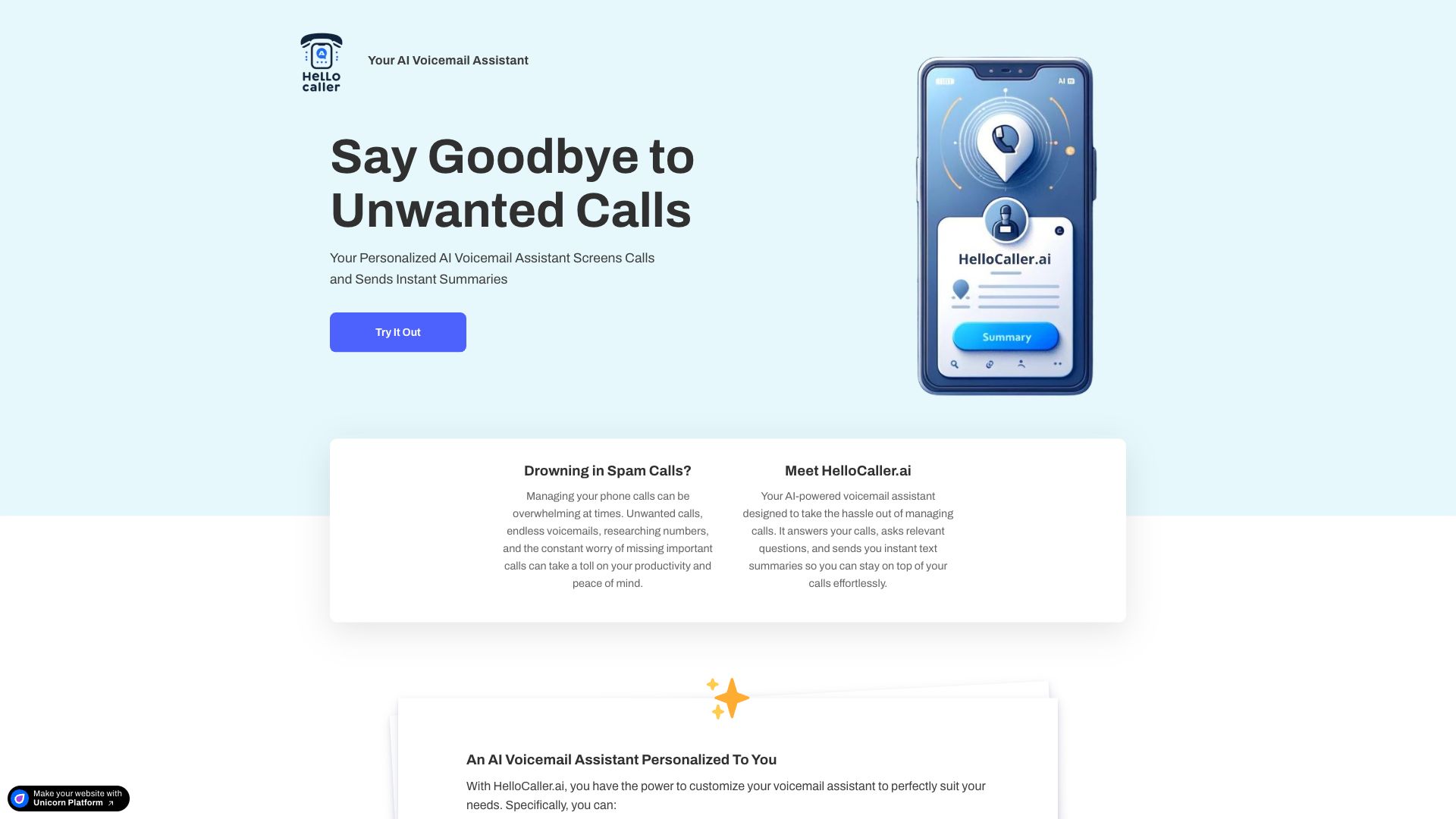Awesome AI Scheduling Tools in 2024
Discover the awesome 1 AI tools for 2024 By Candytools
HelloCaller AI is an AI-powered call automation platform that helps you manage calls, schedule appointments, and increase efficiency. Get started for free and transform your communication workflow!
More AI Tools Categories
What is AI Scheduling?
AI scheduling refers to the use of artificial intelligence to automate and optimize the process of creating, managing, and adjusting schedules. This involves using AI algorithms to handle tasks that traditionally require human intervention, such as:
- Meeting Scheduling: Finding the optimal time for meetings that works for all participants, considering their availability, time zones, and preferences.
- Task Assignment: Assigning tasks to team members based on their skills, workload, and deadlines.
- Resource Allocation: Allocating resources (e.g., equipment, rooms, personnel) efficiently to avoid conflicts and maximize utilization.
- Shift Planning: Creating optimal shift schedules for employees, considering factors like demand, staffing levels, and labor regulations.
How AI Scheduling Works:
-
Data Input: AI scheduling systems require data about:
- Availability of participants or resources
- Task durations and dependencies
- Constraints and preferences
- Historical data on past schedules
-
AI Algorithm Processing:
- AI algorithms, such as constraint satisfaction algorithms, machine learning, or optimization algorithms, process the input data to create an initial schedule.
- They consider various factors to optimize the schedule based on predefined criteria (e.g., minimizing idle time, maximizing resource utilization, meeting deadlines).
-
Schedule Refinement and Adjustment:
- The AI can adjust the schedule dynamically based on real-time changes, such as cancellations, new requests, or resource availability updates.
Benefits of AI Scheduling:
- Time Savings and Efficiency: Automating scheduling tasks frees up human time and reduces manual effort.
- Optimized Resource Utilization: AI algorithms can allocate resources more efficiently, maximizing productivity and minimizing waste.
- Improved Accuracy: AI can consider a wider range of factors and constraints, leading to more accurate and conflict-free schedules.
- Increased Flexibility and Responsiveness: AI can quickly adapt to changing circumstances and accommodate new requests or constraints.
Applications of AI Scheduling:
- Project Management: Scheduling tasks and assigning resources for projects.
- Healthcare: Optimizing appointment scheduling, surgery schedules, and staff rotations.
- Education: Creating class schedules, assigning teachers, and managing room availability.
- Transportation and Logistics: Planning delivery routes, optimizing fleet schedules, and managing warehouse operations.
- Customer Service: Scheduling appointments and managing customer service representative availability.
Tools and Platforms for AI Scheduling:
- x.ai
- Calendly
- Acuity Scheduling
- Google Calendar (AI features)
- Microsoft Outlook (AI features)
The Future of AI Scheduling:
- More Predictive and Proactive Scheduling: AI will anticipate scheduling needs based on historical data and user behavior.
- Personalized Scheduling: Schedules will be tailored to individual preferences and work styles.
- Seamless Integration with Other Systems: AI scheduling will be integrated with other business applications to streamline workflows.
AI scheduling is transforming how we manage time and resources. As AI algorithms become more sophisticated, they will enable more intelligent, efficient, and adaptable scheduling solutions across various industries.
